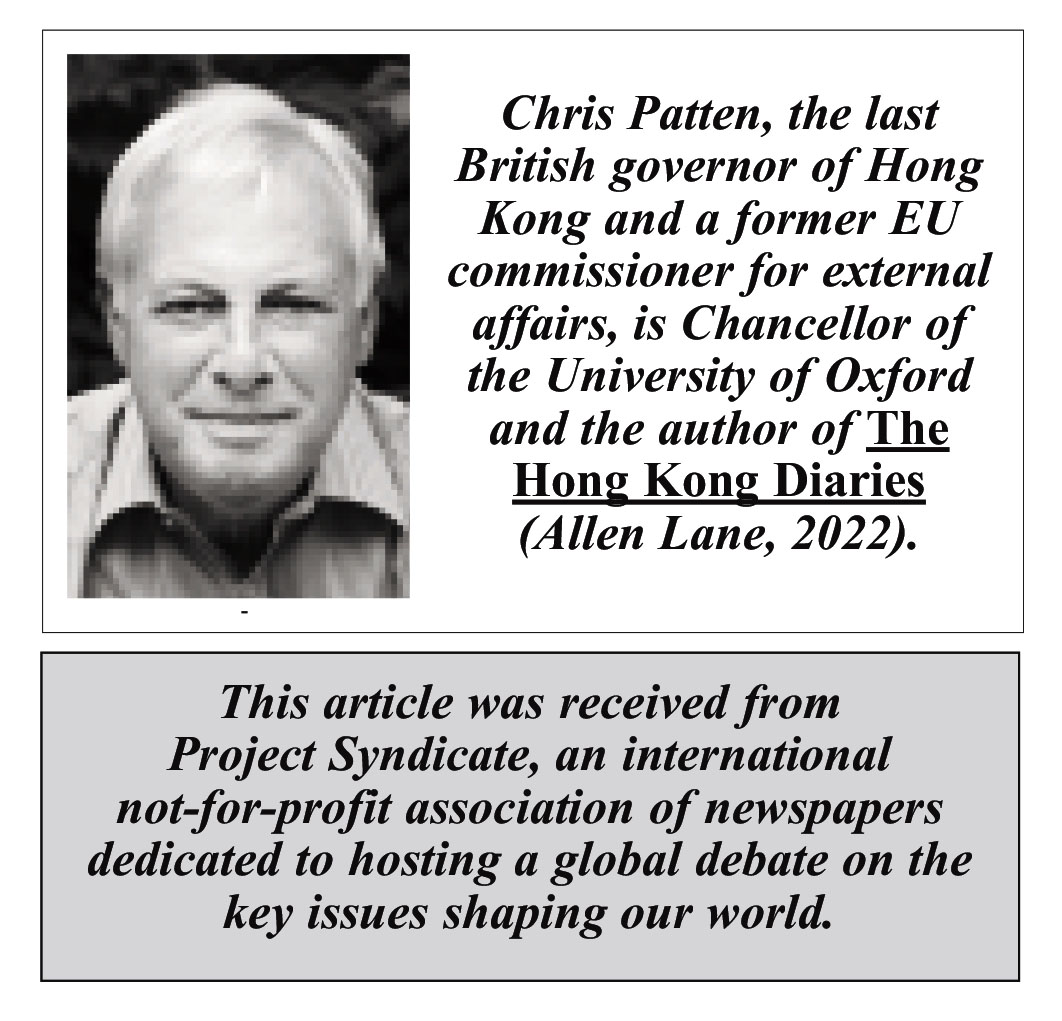TOULOUSE – The days between Christmas and the New Year often prompt many of us to reflect on the problems facing the world and to consider what we can do to improve our own lives. But I typically find myself in this contemplative state at the end of my summer holiday, during the dog days of August.
After several weeks of relaxation – reading books, taking leisurely walks, and drifting in a swimming pool – I am more open to contemplating the significant challenges that will likely dominate discussions over the coming months and pondering how I can gain a better understanding of the issues at stake. Recent developments, however, offer little cause for optimism.
Over the past few weeks, images of forest fires and floods have dominated our screens. As wildfires raged in Hawaii, Canada, and the eastern Mediterranean, much of the world has experienced record temperatures. Meanwhile, northern China and parts of Europe, the United States, and Latin America have been hit by severe storms and devastating floods. Given these extreme weather events, one would expect climate change to be at the forefront of political debates worldwide.
Yet, it isn’t. In the US, the candidates seeking the Republican Party’s nomination for next year’s presidential election seem to be competing to downplay the significance of the issue. Outspoken newcomer Vivek Ramaswamy, for example, argued during the recent Republican debate that climate change is a “hoax.” Presumably, the Harvard-educated Ramaswamy is reasonably well-informed. But overwhelming empirical evidence seems to matter little to a party that sings to Donald Trump’s tune.
As the American right increasingly embraces climate denialism, a recent report by the International Monetary Fund reveals that explicit fossil-fuel subsidies worldwide more than doubled between 2020 and 2022, rising to 1.3% of world GDP, despite G20 countries’ promises to accelerate the clean-energy transition and mitigate the impending increase in global temperatures. This climate hypocrisy stands in stark contrast to the courage of Nigerian President Bola Ahmed Tinubu, who abolished a fuel subsidy in his country in one of his first policy moves.
Meanwhile, the war in Ukraine continues to dominate news headlines. While assassination by plane crash marks a departure from the Kremlin’s previous use of radiation and nerve gas against opponents, the recent death of Wagner Group chief Yevgeny Prigozhin – exactly two months after his short-lived rebellion – has underscored Russian President Vladimir Putin’s intolerance of any form of dissent.
As the war rages on, Russia’s blockade of Ukraine’s grain exports is expected to have a devastating effect on the world’s poorest countries, especially in Africa. The Ukraine war, together with climate change and political instability, will undoubtedly increase the already-massive number of immigrants arriving in Europe. The United Kingdom is hardly alone in its apparent inability to deal with this overwhelming influx of people embarking on perilous journeys in pursuit of a better life.
Amid this perfect storm of political and economic upheavals, a remarkable documentary exploring China’s unprecedented attacks on press freedom and the rule of law in Hong Kong under President Xi Jinping offers an unlikely source of optimism. This insightful film, which is available on YouTube, focuses on the struggles of Jimmy Lai, a refugee from communist China, self-made media tycoon, and pro-democracy activist who has been sentenced to more than six years in prison on trumped-up charges for participating in peaceful protests.
The film chronicles Lai’s “extraordinary struggle for freedom” and the efforts of Xi’s loyalists in Hong Kong to imprison him indefinitely. The authorities despise Lai for many reasons, among them his escape from the mainland to seek refuge in Hong Kong, then a British colony, and his vocal criticism of China’s leadership, especially then-Prime Minister Li Peng, following the 1989 Tiananmen Square massacre. Over the years, as his newspapers highlighted China’s human-rights abuses, Lai became a staunch advocate of greater democracy and the preservation of Hong Kong’s rule of law.
Lai’s activism underscores the essential role of free speech in ensuring citizens’ well-being. To be sure, the limits of free speech are often the subject of fierce debate, with most liberal democracies agreeing, for example, that hate speech should be outlawed. But virtually all open societies believe that governments should not restrict free speech to shield themselves from criticism or curtail public dissent.
Illiberal democracies, such as Viktor Orbán’s Hungary, do limit free speech, while authoritarian countries like Recep Tayyip Erdoğan’s Turkey take even stricter measures. Totalitarian regimes like China’s, however, expect complete adherence to their policies and official narratives. This approach was glaringly apparent during the early stages of the COVID-19 outbreak in Wuhan, where citizen journalists who tried to report on the situation in the city faced abuse, torture, and imprisonment.
This is also why China has ruthlessly suppressed free speech in Hong Kong and why Lai might spend the rest of his life behind bars. And yet, watching the documentary chronicling his fight for democracy, I found myself heartened by Lai’s invocation of an ancient Chinese proverb: a bird, he said, would choose death over a life shrouded in silence.
Copyright: Project Syndicate, 2023.


